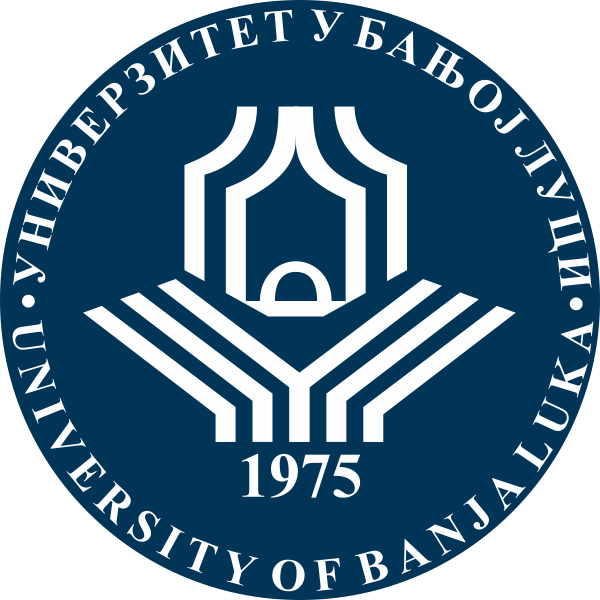SportLogia
Vol. 9, Issue 2, Decembar 2013.
ODVAJANJE BITNOG OD NEBITNOG: OBN MODEL UČENJA
Nenad Suzić1, Vera Jelić2 i Ankica Milivojac3
1Filozofski fakultet, Univerzitet u Banjoj Luci, Bosna i Hercegovina
2Osnovna škola „Petar Kočić“ Šibovska, Prnjavor, Bosna i Hercegovina
3Diplomirani pedagog, nezaposlena, Boasna i Hercegovina
orginalan NUČNI ČLANAK
doi: 10.5550/sgia.130902.se.001S
COBISS.RS-ID 4112664
UDK: 378.014.3:337.147
Sažetak
U ovom istraživanju prikazana je eksperimentalna primjena OBN modela učenja u nastavi. Radi se o odvajanju bitnog od nebitnog, OBN modelu koji je primijenjen u eksperimentu sa rotacijom grupa. Naime, prvo su tri odjeljenja drugog, trećeg i četvrtog razreda vjeržbala primjenu OBN modela na 12 časova, a tri paralelna odjeljenja predstavljala su K-grupu i radila po tradicionalnom nastavnom modelu. Nakon 12 časova mjereni su efekti primjene OBN modela u E-grupi i tradiocionalne nastave u K-grupi. Potom su učenici K-grupe radili 12 časova uz primjenu OBN modela, a E-grupa je radila po tracioonalnom nastavnom modelu. Nakon toga izvršena su ponovna mjerenja. Mjerena je motivisanost učenika, zatim kako oni vrednuju gradivo i koliko su zapamtili najbitnije činjenice iz gradiva koje rade. Pokazalo se da OBN model daje bolje efekte u motivaciji, vrednovanju gradiva te u pamćenju činjenica.
Ključne riječi: aktivnost učenika, motivacija, pamćenje činjenica, učenje, vrenovanje gradiva.
Literatura
Awh, E. (2012). A common discrete resource for visual working memory and visual search. Paper presented at 2012 annual meeting near Munich, Germany, in July 2012: Visual searchand selective attention (VISSA III). Retrived from http://www.mvss.org.
Bandura, A. (1969). Social-learning theory of identificatory processes. In D. A. Goslin (Ed.), Handbook of socialization theory and research (pp. 213–262). Chicago, IL: Rand McNally.
Bandura, A. (1977). Social learning theory. Englewood Cliffs, NJ: Prentice-Hall.
Bryman, A., & Cramer, D. (2001). Quantitative data analysis with SPSS release 10 for Windows: A guide for social scientists. New York, NY: Routledge.
Bugg, J. M., & McDaniel, M. A. (2012). Selective benefits of Question self-generation and answering for remembering expository text. Jurnal of Educational Psychology, 104(4), 922–931. doi: 10.1037/a0028661 ![]()
Fry, R. W. (1996). Improve your memory. 3rd ed. New York, NY: Book-Smart Press.
Gilovich, T., Griffin, D., & Kahneman, D. (2002). Heuristics and Biases: The Psychology of Intuitive Judgment. Cambridge, UK: Cambridge University Press. doi: 10.1017/CBO9780511808098 ![]()
Greene, J. D., Sommerville, R. B., Nystorm, L. E., Darley, J. M., & Cohen, J. D. (2001). An fMRI investigation of emotional engagement in moral judgment. Science, 293(5537), 2105–2108. doi: 10.1126/science.1062872;![]() PMid:11557895
PMid:11557895
Griffin, T. D., Wiley, J., & Thiede, K. W. (2008). Individual differences, rereading, and self-explanation: Concurrent processing and cue validity as constrains on metacomprehen-sion accuracy. Memory & Cognition, 36(1), 93–103.
doi: 10.3758/MC.36.1.93 ![]()
Huffman, L. E., & Spires, H. A. (1994). Effects of explicit instruction in note taking on sixth graders' lecture comprehension and attitudes toward note taking. Reading Improvement, 11, 72–76.
Jelić, V. (2013). Pamćenje sadržaja s obzirom na značaj koji učenici pridaju gradivu [Memory contents due to the importance that students attach to school material]. Unpublished master thesisi, Filozofski fakultet, University of Banja Luka.
Kiewra, K., Dubois, N., Christain, D., McShane, A., Meyerhoffer, M., & Roskelley, D. (1991). Note-taking functions and techniques. Journal of Educational Psychology, 83(2), 240–245. doi: 10.1037/0022-0663.83.2.240 ![]()
King, A. (1992). Facilitating elaborative learning through guided student-generated questioning. Educational Psychologist, 27(1), 111–126. doi: 10.1207/s15326985ep2801-8. ![]()
Mayer, R. R. (2002). The promise of educational psychology. Vol. 2. Teaching for meaningful learning. Columbus, OH: Merrill/Prentice Hall.
doi: 10.1207/S15326985EP3702_5;![]()
doi: 10.1037/0022-0663.94.3.486;![]()
doi: 10.1207/00461520252828528;![]()
doi: 10.1037/0022-0663.94.1.171;![]()
doi: 10.1207/S15326985EP3701_3 ![]()
McNamara, D. S. (2004). SERT: Self-explanation reading training. Discourse Processes, 38(1), 1–30.
doi: 10.1207/s15326950dp3801_1 ![]()
Myers, D. G. (1989). Psychology. New York: Worth Publishers, Inc.
Noordman, L. G. M., Vonk, W., & Kempff, H. J. (1992). Causal inferences during the reading of expository text. Journal of Memory and Language, 31, 573–590. doi: 10.1016/0749-596X(92)90029-W ![]()
Restle, F. (1957). Theory of selective learning with probable reinforcements. Psychological Review, 64(3), 182-191. doi: 10.1037/h0042600 ![]()
Rinehart, S. D., & Thomas, K. A. (1993). Summarization ability and text recall by novice studiers. Reading Research and Instruction, 32(4), 24–32. doi: 10.1080/19388079309558130 ![]()
Rogers, C. R. (1969). Freedom to Learn: A View of What Education Might Become. Columbus, OH: Charles E. Merrill.
Rosenshine, B., Meister, C., & Chapman, S. (1996). Teaching students to generate questions: A review of the intervention studies. Review of Educational Research, 66(2), 181–221. doi: 10.3102/00346543066002181 ![]()
Son, L. K., & Metcalfe, J. (2000). Metacognitive and control strategies in study.time allocation. Journal of Experimental Psychology Learning, Memory, and Cognition, 26(1), 204–221. doi: 10.1073/0278-7393.26.1.204. ![]()
Suzić, N. (2008). Can we motivate students to memorize senseless contents. In A. Kozlowska, R. Kahn, B. Kožuh, A. Kington, and J. Mažgon (Eds.), The role of theory and research in educational practice (pp. 113–133). Unicersity of North Dakota.
Thiede, K. W., Anderson, M. C. M., & Therriault, D. (2003). Accuracy of metacognitive monitoring affects learning of texts. Journak of Educational Pschology, 95(1), 66–73. doi: 10.1037/0022-0663.95.1.66 ![]()
Thiede, K. W., Griffin, T. D., Wiley, J., & Anderson, M. C. M. (2010). Poor metacomprehension accuracy as a result of inappropriate cue use. Discourse Processes, 47, 331–362. doi: 10.1080/01638530902959927. ![]()
Ugazio, G., Lamm, C., & Singer, T. (2012). The role of emotions for moral judgments depends on the type of emotion and moral scenario. Emotion, 12(3). 579–590. doi: 10.1037/a0024611 ![]()
Young, L., Camprodon, J., Hauser, M., Pascual-Leone, A., & Saxe, R. (2010). Disruption of the right temporo-parietal junction with transcranial magnetic stimulation reduces the role of beliefs in moral judgment. Proceedings of the National Academy of Science, USA of the USA, 107, 6753–6758. doi: 10.1073/pnas.0914826107;![]() PMid: 20351278; PMCid: PMC2872442.
PMid: 20351278; PMCid: PMC2872442.




